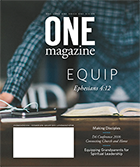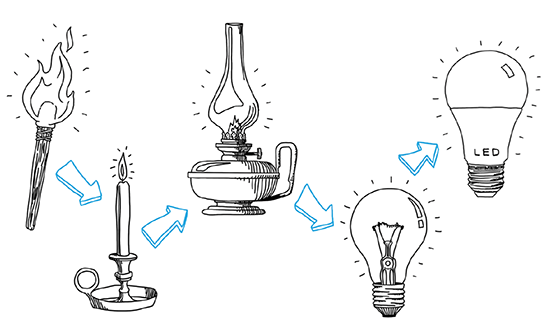
December 2018–
January 2019
Equip
(Ephesians 4:12)
------------------
|





The column "Leadership Whiteboard" provides a short visual leadership coaching moment. It introduces and explains a new sketch in each issue, provides leadership coaching for further development, and shares a leadership quote and recommended book.
Effective Planning Accomplishes Big Goals
Why do we have phones no longer connected to the wall or GPS rather than maps? Do you love emailing more than faxing? When visiting Mount Vernon recently, I was reminded the kitchens were detached from the home in the 18th century because of the fear of fire. I often recall the familiar story of the Boeing engineer who bragged about the safety of jet engines over propellers, but when asked how many flights he had taken, reluctantly admitted none.
We easily forget how difficult it was to adopt each gadget, invention, or innovative way of doing things. People naturally reject change, because they have a history with something else that worked well. Ordering someone or some group to change brings little success because followers were forced to comply rather than choosing the new direction. A column like this cannot teach change but can introduce the basic ideas.

First, before people change, they must see the need for (or urgency to) change. This must come from more than just the leader; others need to echo the rationale for change. Leaders should enlist next tier leaders (deacons, staff, key volunteers) to buy in before rolling out change to the entire group. Creating buy-in requires the second tier understanding, discussing, and improving the proposed change. When sharing the change with each group, demonstrate two major points: what will happen if change does not occur, and the advantages of the change.
If possible, demonstrate how other groups or churches have adopted the change and benefitted as a result. Consider a trial period—for the summer or for a month—so they are not committing to the change permanently.
Remember, start by asking what will happen if change does not occur? With a little work, you can help people enjoy indoor plumbing, a good sound system, air-conditioning, and family ministry that works at church and at home.
About the Columnist: Ron Hunter Jr., Ph.D., is CEO of Randall House
Publications.

|
|

